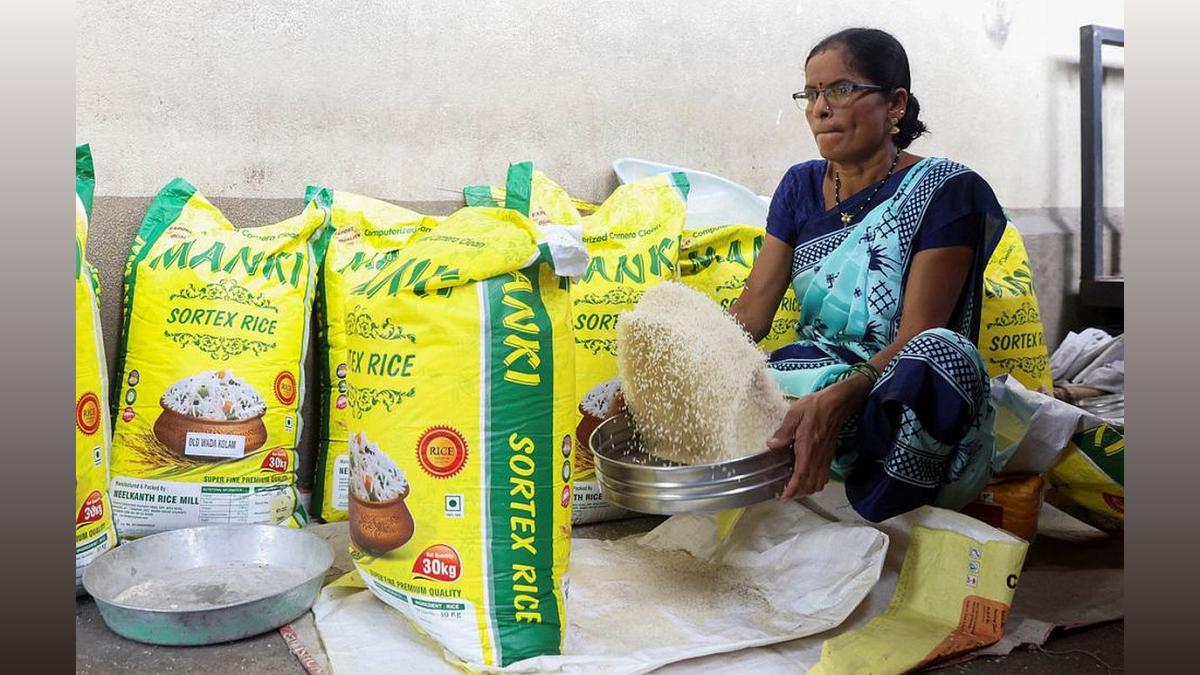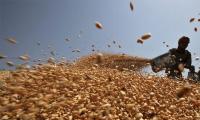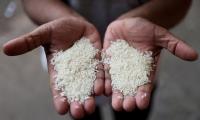GM-Free Coalition Condemns Release of Gene-Edited Rice
x
The Coalition for a GM-Free India criticizes the government for releasing gene-edited rice varieties, citing concerns about safety and potential risks to India's rice gene pool.

Photograph: Francis Mascarenhas/Reuters
New Delhi, May 5 (PTI) The Coalition for a GM-Free India on Monday criticised the government for releasing two genome-edited rice varieties, alleging that the move was on account of pressure from corporate lobbies
Agriculture Minister Shivraj Singh Chouhan on Sunday unveiled the first genome-edited rice varieties - DRR Dhan 100 (Kamala) and Pusa DST Rice 1 - developed by the Indian Council of Agricultural Research (ICAR) to address climate change challenges and boost rice yields by up to 30 per cent.
"It is shocking that the Government of India is doing unlawful things under pressure from corporate lobbies. There is an enormous body of scientific literature pointing to the lack of safety of gene editing techniques," the Coalition said in a statement.
The group warned these gene-edited rice varieties put India's diverse rice gene pool at risk and argued that gene editing is genetic modification under India's statutory definition of genetic engineering.
The Coalition objected to the government's deregulation of SDN-1 and SDN-2 gene editing techniques, claiming varieties were released "without any safety testing" under what it called a "smokescreen of higher yield/drought resistance".
"We object to it and warn the government that strong resistance will be put up against this development," the Coalition stated.
It further criticised the government for "compromising" farmers' seed sovereignty by introducing technologies with intellectual property rights issues, demanding immediate transparency regarding IPRs on the released varieties.
The Coalition cited scientific evidence suggesting gene editing technology is not precise and causes unpredictable genetic errors both at targeted and off-site locations, adding that the deregulated techniques could unintentionally implant foreign genetic material in host organisms.
The Coalition demanded the government share details of safety testing done on these varieties and prove public interest and native germplasm were not "irresponsibly, irretrievably compromised".
"It is clear that what has been done here is violative of the Supreme Court's orders of July 2024 and tantamount to contempt of court," the Coalition said, calling on the government to stop the release of these crops.
Agriculture Minister Shivraj Singh Chouhan on Sunday unveiled the first genome-edited rice varieties - DRR Dhan 100 (Kamala) and Pusa DST Rice 1 - developed by the Indian Council of Agricultural Research (ICAR) to address climate change challenges and boost rice yields by up to 30 per cent.
"It is shocking that the Government of India is doing unlawful things under pressure from corporate lobbies. There is an enormous body of scientific literature pointing to the lack of safety of gene editing techniques," the Coalition said in a statement.
The group warned these gene-edited rice varieties put India's diverse rice gene pool at risk and argued that gene editing is genetic modification under India's statutory definition of genetic engineering.
The Coalition objected to the government's deregulation of SDN-1 and SDN-2 gene editing techniques, claiming varieties were released "without any safety testing" under what it called a "smokescreen of higher yield/drought resistance".
"We object to it and warn the government that strong resistance will be put up against this development," the Coalition stated.
It further criticised the government for "compromising" farmers' seed sovereignty by introducing technologies with intellectual property rights issues, demanding immediate transparency regarding IPRs on the released varieties.
The Coalition cited scientific evidence suggesting gene editing technology is not precise and causes unpredictable genetic errors both at targeted and off-site locations, adding that the deregulated techniques could unintentionally implant foreign genetic material in host organisms.
The Coalition demanded the government share details of safety testing done on these varieties and prove public interest and native germplasm were not "irresponsibly, irretrievably compromised".
"It is clear that what has been done here is violative of the Supreme Court's orders of July 2024 and tantamount to contempt of court," the Coalition said, calling on the government to stop the release of these crops.
You May Like To Read
TODAY'S MOST TRADED COMPANIES
- Company Name
- Price
- Volume
- Vodafone-Idea-L
- 11.65 (+ 3.56)
- 106772451
- Alstone-Textiles
- 0.28 ( -3.45)
- 44187760
- Mangalam-Industrial
- 0.88 ( -2.22)
- 39177573
- Sunshine-Capital
- 0.27 (+ 3.85)
- 35956340
- GMR-Airports
- 104.40 (+ 6.37)
- 30453005





